Not Afraid
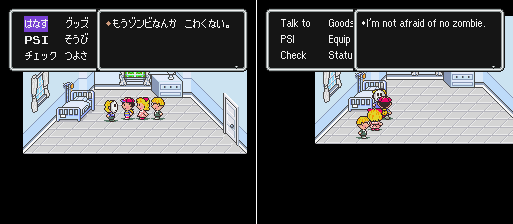 |
This particular line is 100% okay and faithful to the original. But I can’t help but shake the feeling that the English writer/editor had the old Ghostbusters catchphrase in the back of his mind. Maybe it’s the fact that this guy uses the singular form. I dunno. But it seemed noteworthy enough to mention quickly, so here it is.
Pun Addition
 |
In the English version, we see this scuzzy guy makes a pun using the word “share”. There was no pun or word play at all in the Japanese text, so this was done entirely by the localization editor.
Mistaken Name
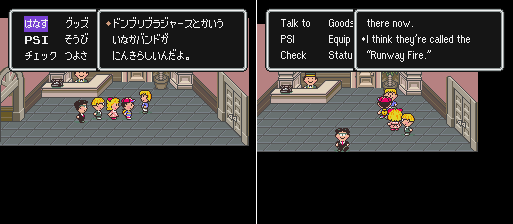 |
In EarthBound, this character in Threed mixes up the Runaway Five’s name by calling them the “Runway Fire”.
In MOTHER 2, he messes up the Tonzura Brothers’ name by calling them the Donburi Brassieres. A donburi is a type of rice bowl dish in Japan. You can read more here.
Incidentally, a decade and a half later, such a brassiere was made:
 |
Hidden Character #1
Using the power of ROM hacking, a lot of “lost” or “removed” game content has been discovered in the EarthBound and MOTHER 2 games. Luckily, sometimes these things can be switched back on to work correctly. In Threed, for example, there are two characters who should appear after you defeat Master Belch, but the programmers messed up, leaving this stuff unaccessable.
Here’s what one such “missing” character says in both games:
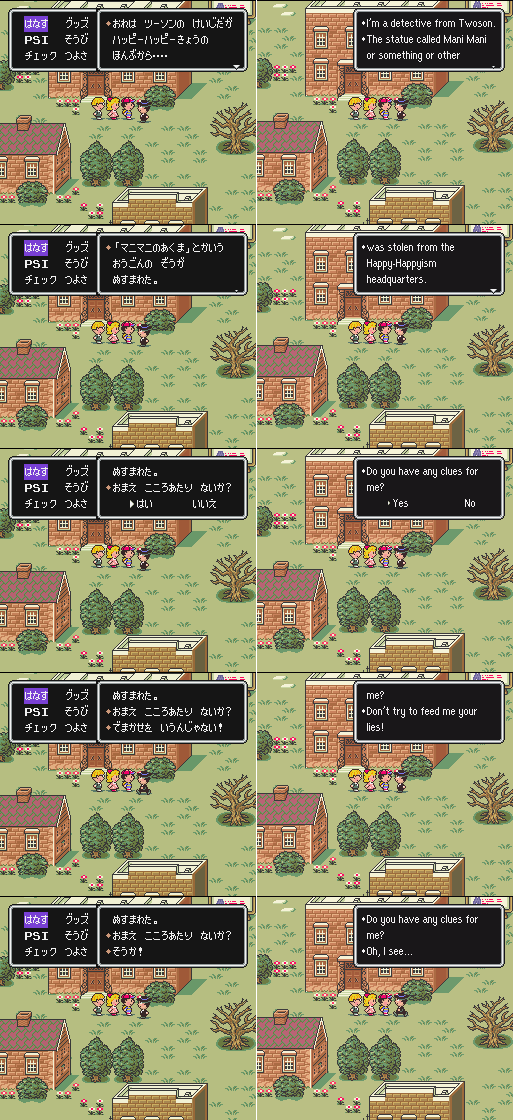 |
The text is basically identical in both versions. What’s interesting about this guy is that he adds even more to the story by explaining how the Mani Mani statue actually ends up in Fourside to begin with.
Hidden Character #2
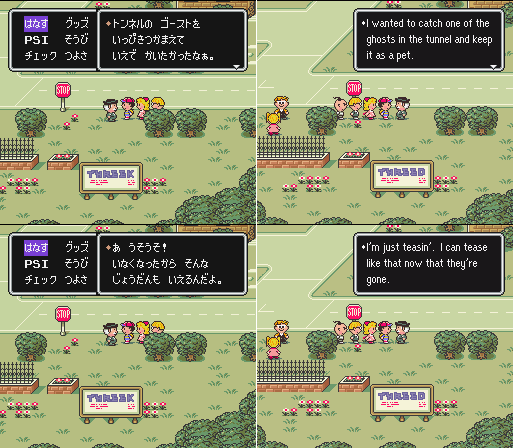 |
Here’s another character who should’ve been available to talk to in Threed after you defeat Master Belch, but the programmers messed up. Note that he’s in town BEFORE you fight Belch, and he talks about the tunnel or something, but after you beat Belch, he’s nowhere to be found. Well, you DO get a glimpse of him for some reason if you ride the bus from Threed to Fourside, but you can’t get out and talk to him, obviously.
- A relevant note on pun inspiration in game localization
- A Japanese line that uses a unique speech pattern, a brief look at the speech pattern’s history, and how it was localized into English in this case
- A look at how MOTHER 2 serves as a time capsule of Japanese pop culture


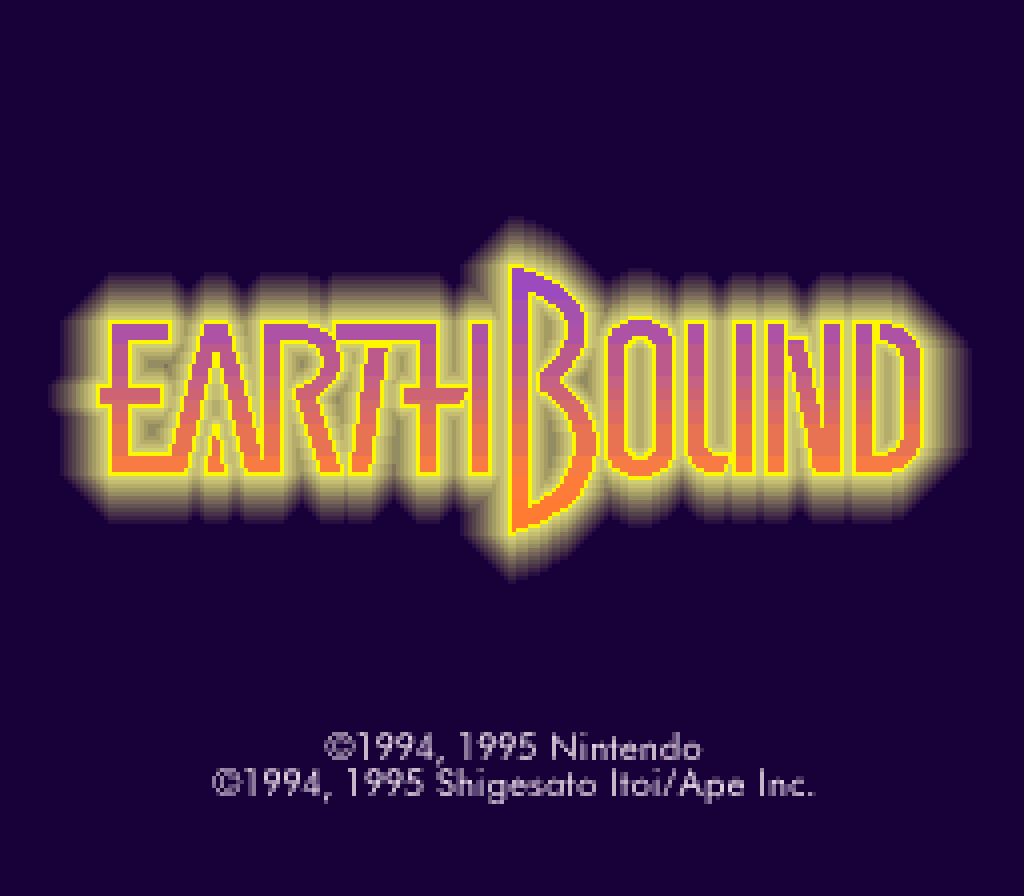
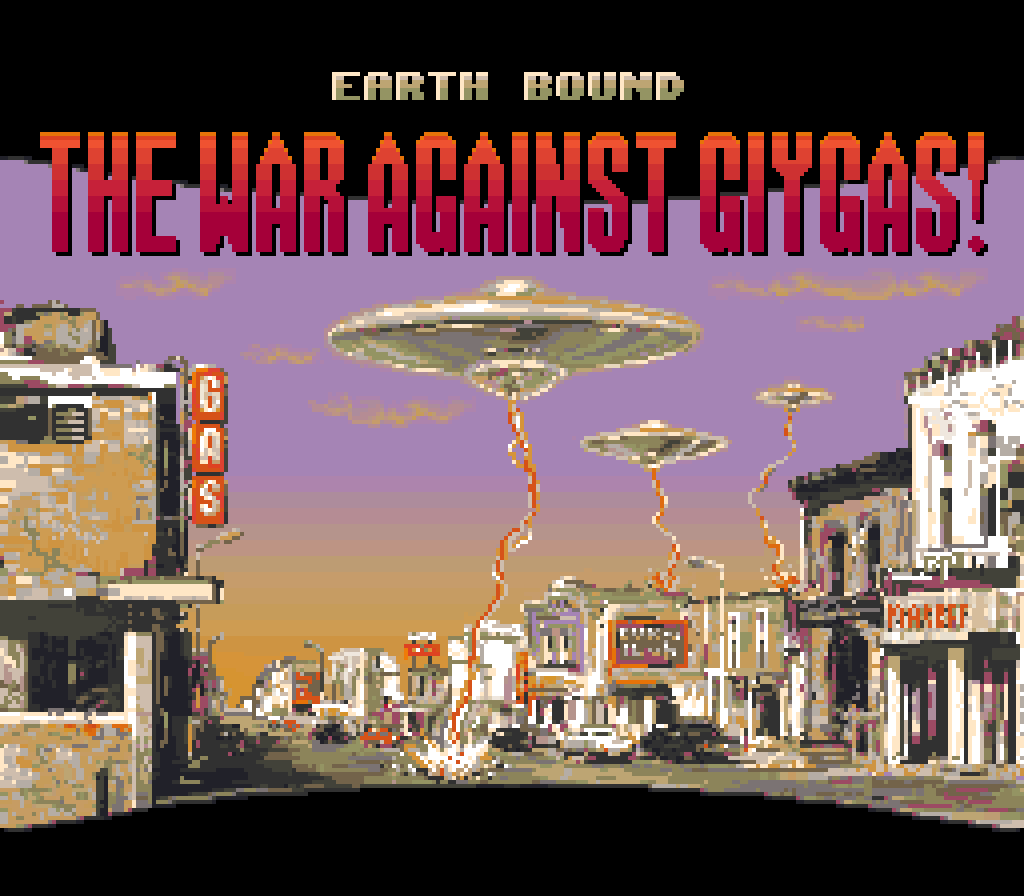
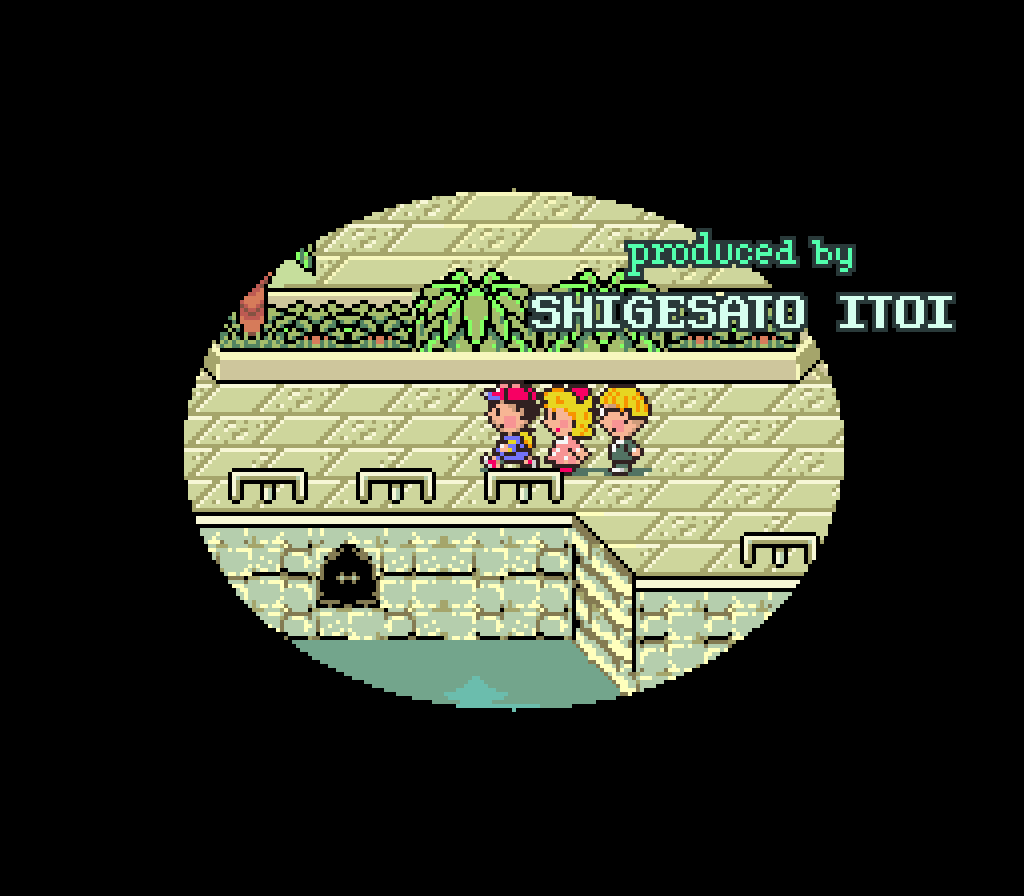
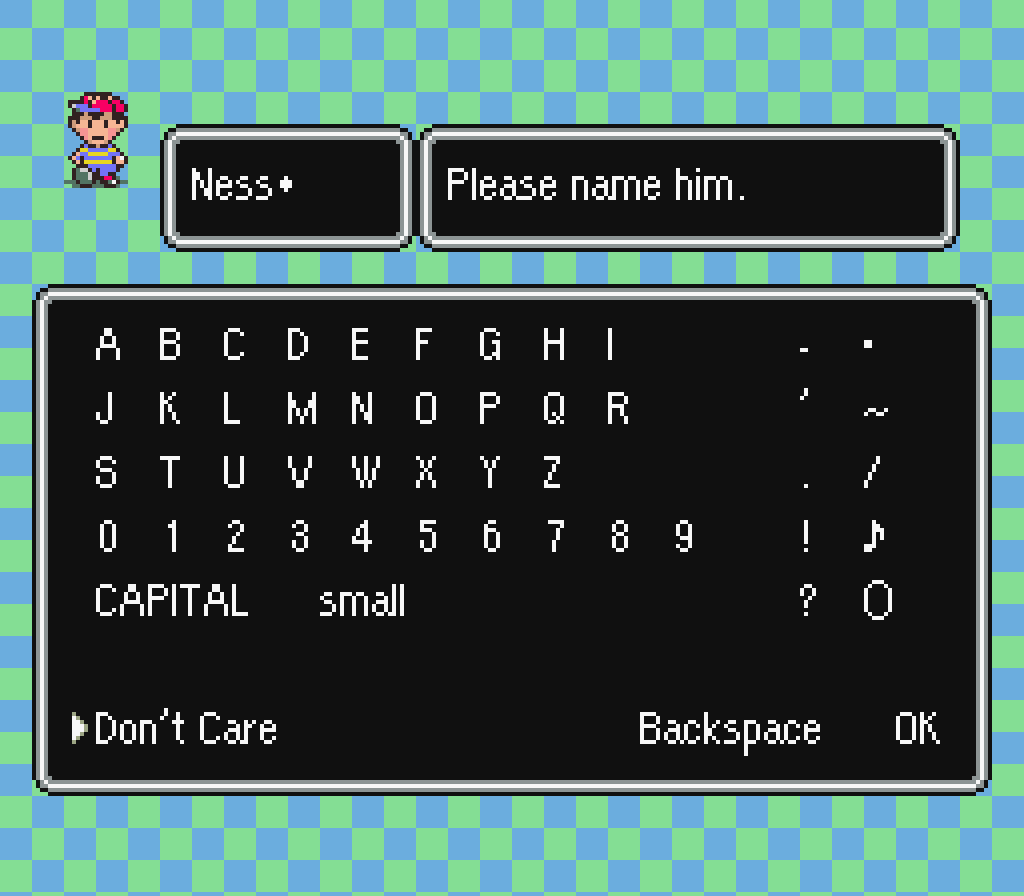
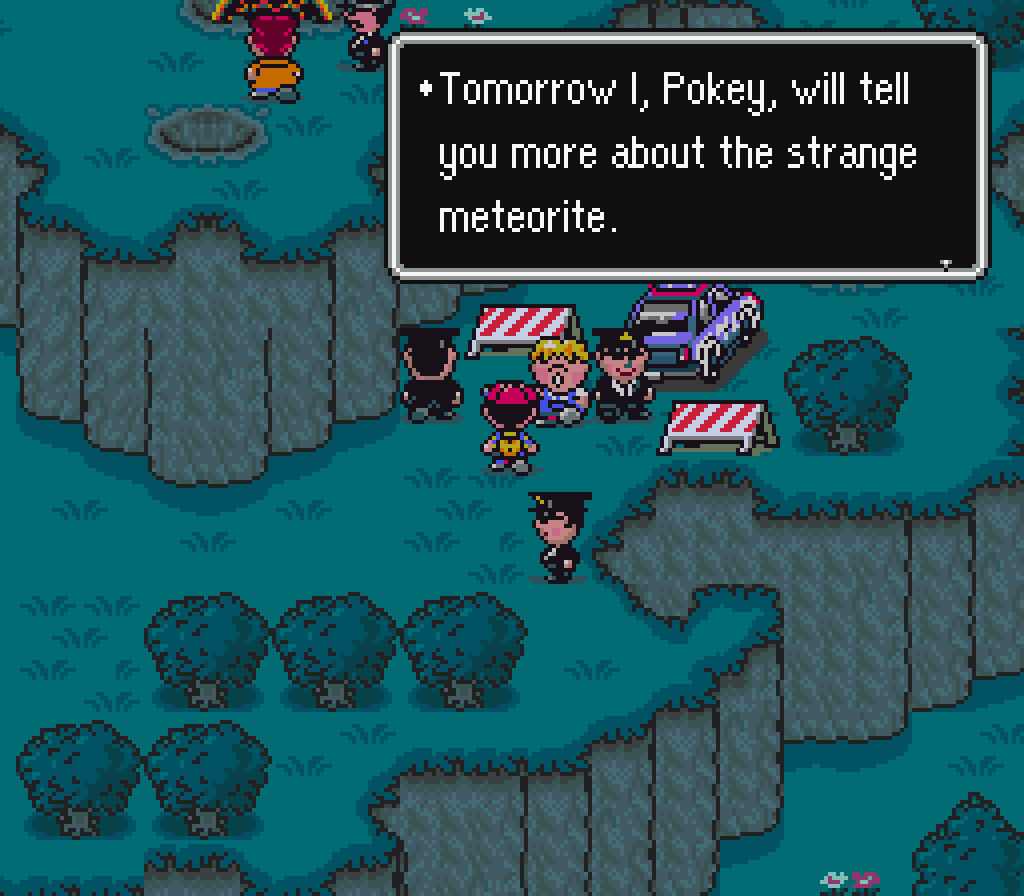
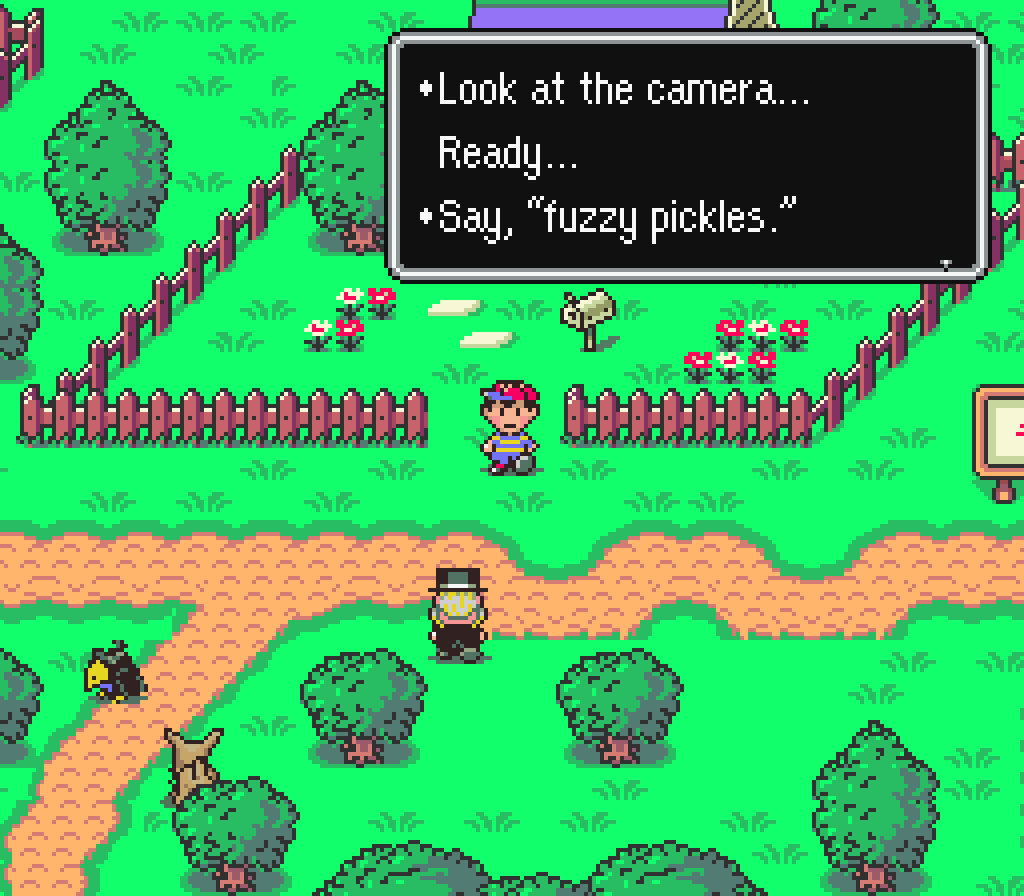
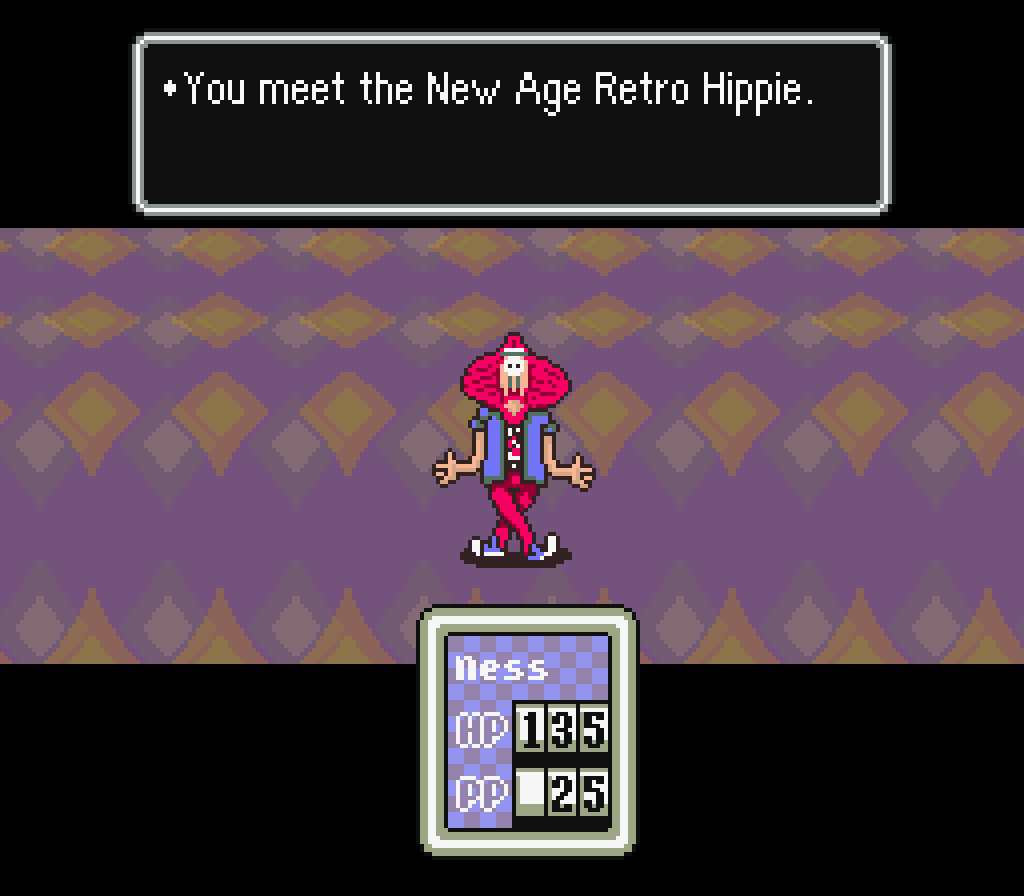
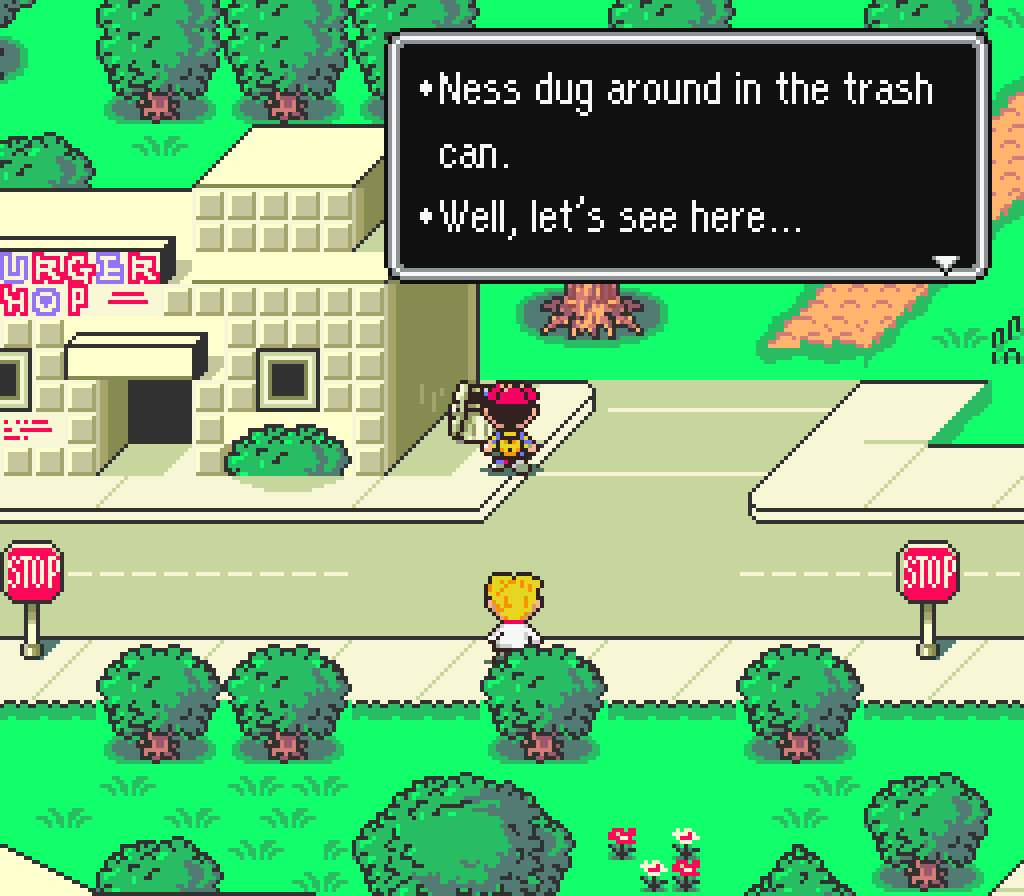
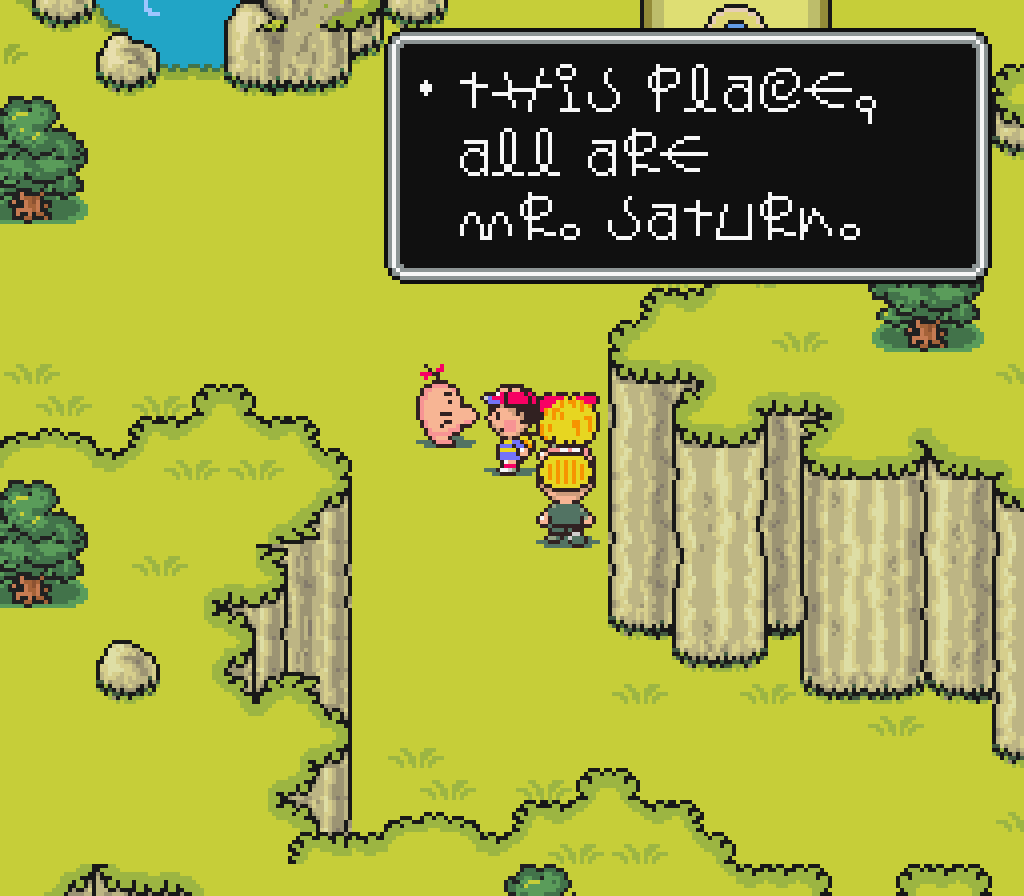
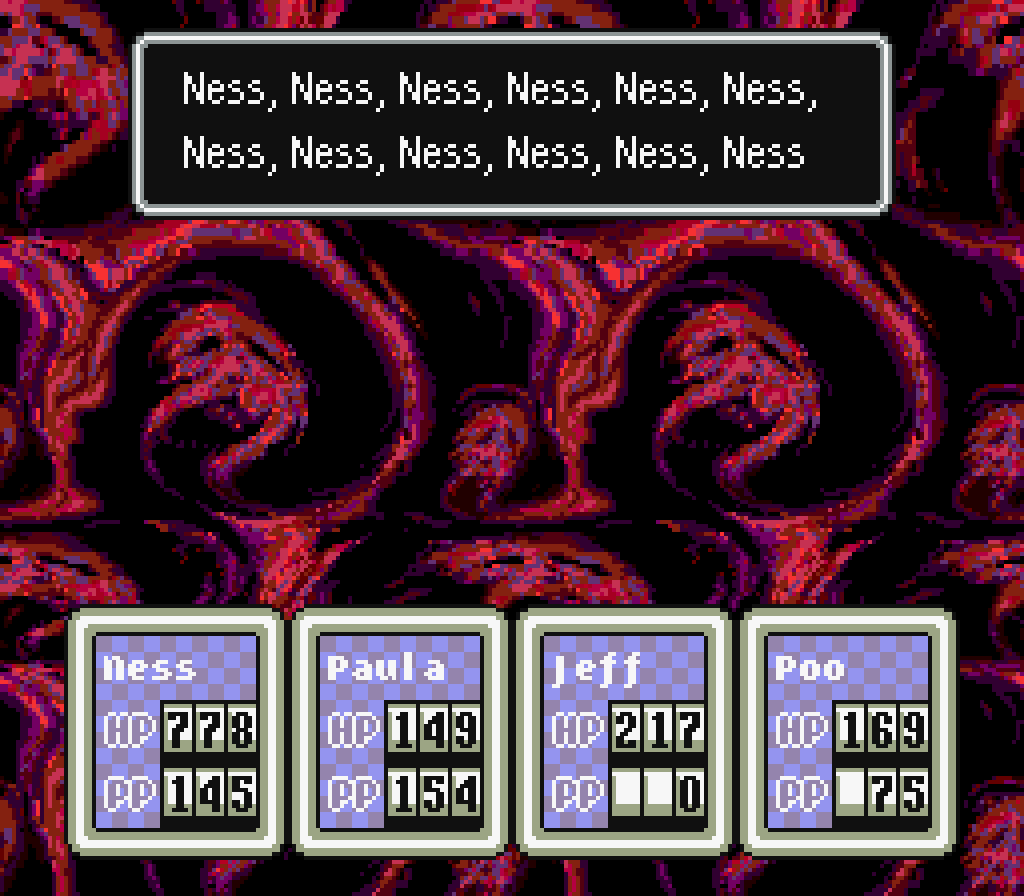
![Passport to MOTHER 2 [Learn Japanese!] Passport to MOTHER 2 [Learn Japanese!]](https://legendsoflocalization.com/wp-content/uploads/2018/05/pp-m2.jpg)
No Comments